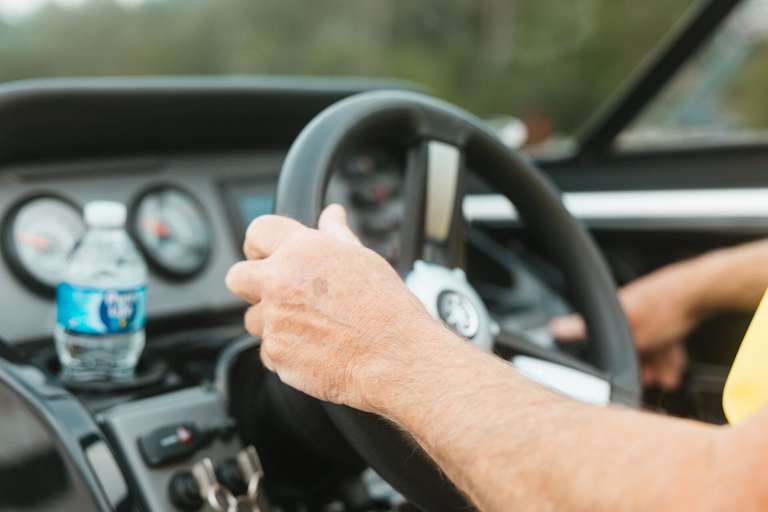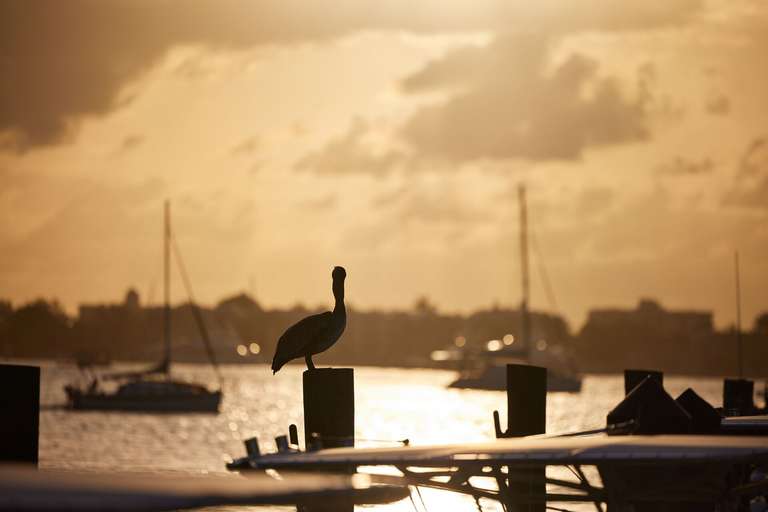A Guide to Boat Towing and Trailering
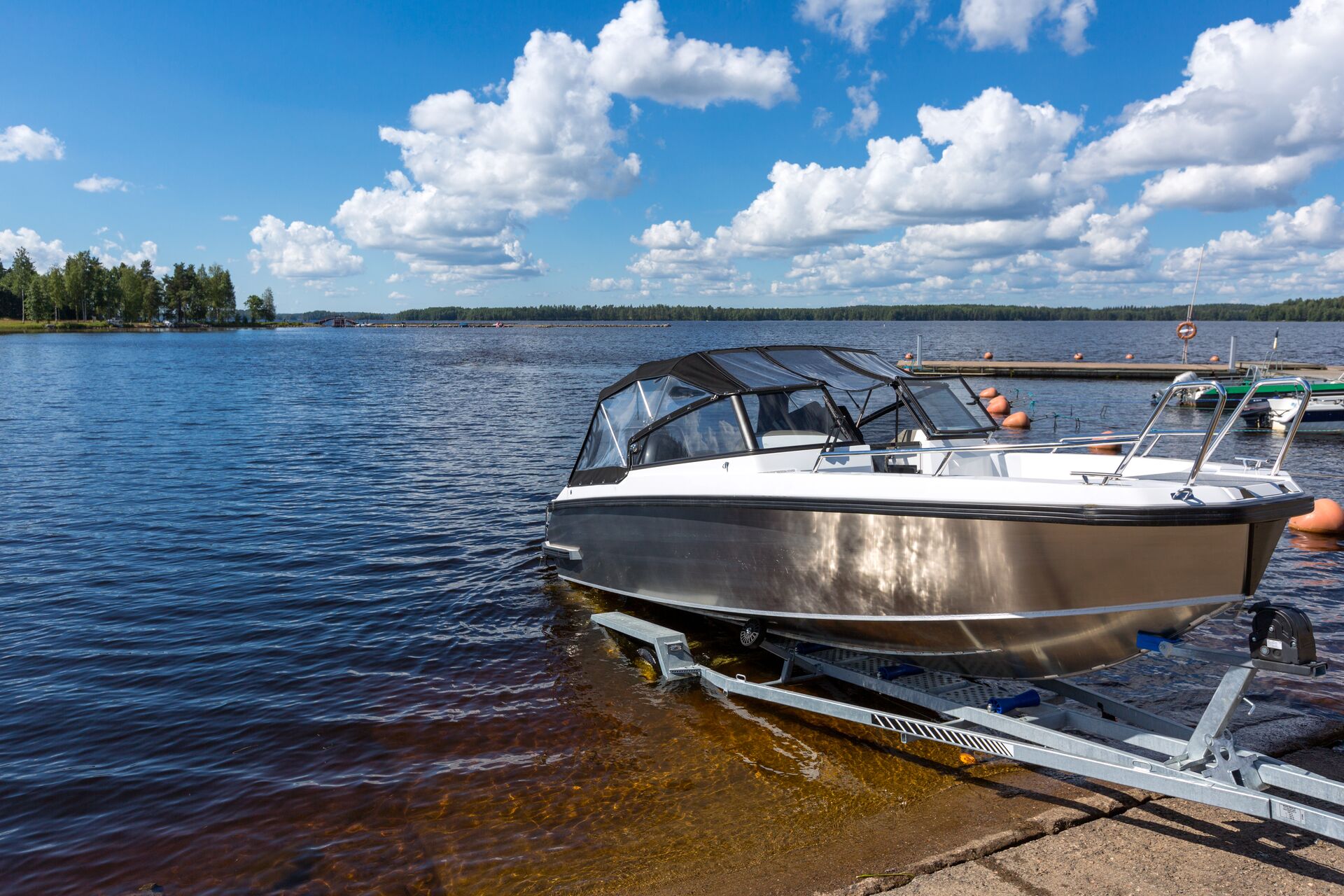
Loading up your boat and taking it to your favorite lake or a new waterway to explore is just part of the fun of having a boat. Have boat, will travel, right?
It's not quite that easy. However, understanding how boat towing and trailering work to get your vessel from Point A to Point B can help you have more fun on the water every season.
It is crucial to have the right vehicle, trailer, hitch, and safety chains to tow your boat. Let's look at what you need to consider when choosing a trailer to carry your boat safely!
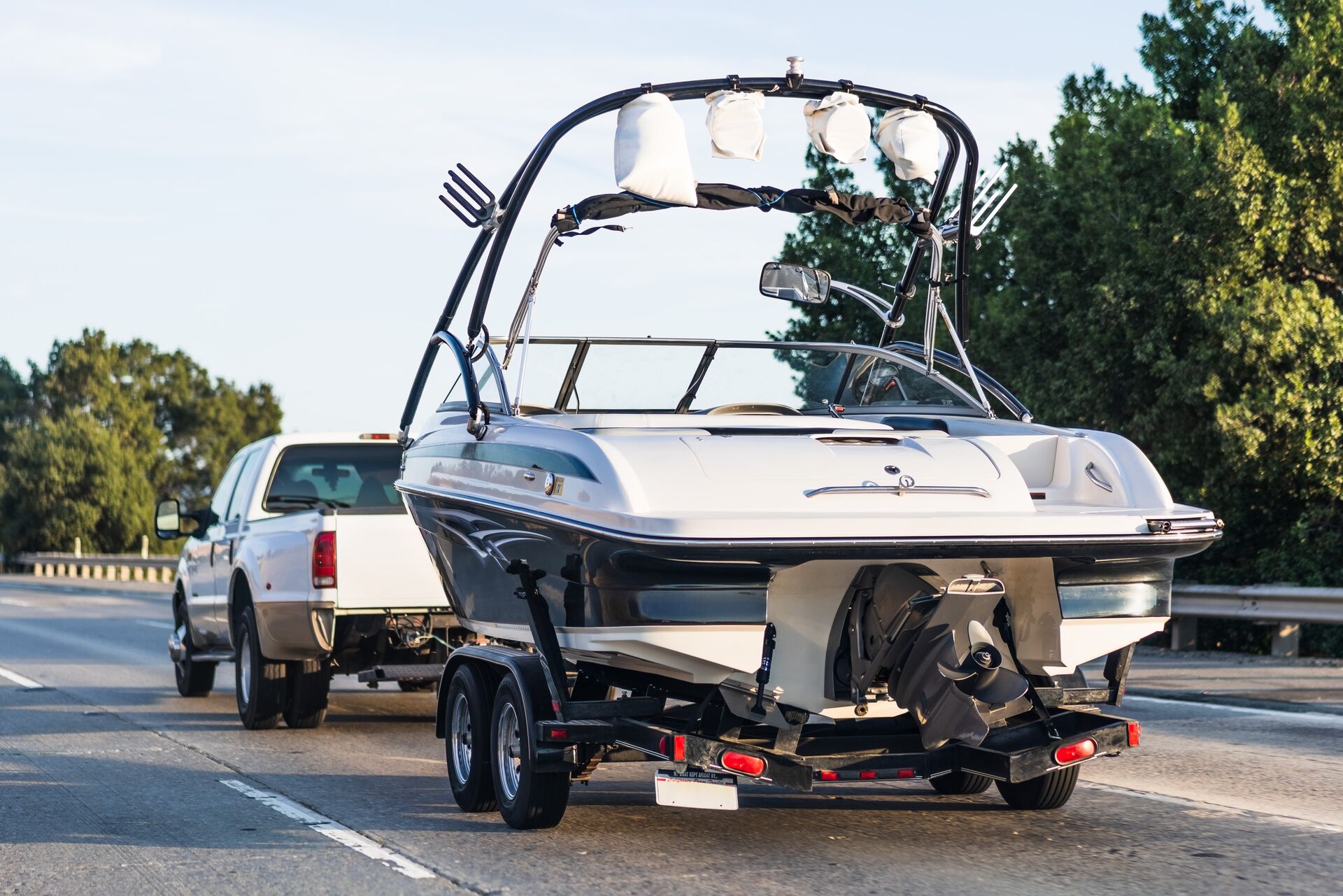
Understanding Trailer Capacity
Trailers, similar to boats, have capacity plates. This plate will tell you the capacity (or how much weight) your trailer can carry. The capacity includes the ship's weight, motor fuel, and all gear carried on the boat.
The tongue weight (TW) is the total weight a fully loaded trailer puts on the tow vehicle's hitch ball. This weight should never exceed the capacity of the tow vehicle and towing components.
Exceeding the capacity can cause the towing vehicle to experience difficult steering or braking, which can be extremely dangerous. However, having too light of a load may cause the boat to fishtail and could even result in the separation of the boat and tow vehicle.
Check out the chart below for a guide to trailer classes and the ideal towing weight.
| TRAILER CLASS | TOWING WEIGHT |
|---|---|
| Class 1 | Not to exceed 2,000 lb. |
| Class 2 | 2,001 lb. to 3,500 lb. |
| Class 3 | 3,501 lb. to 5,000 lb. |
| Class 4 | Over 5,000 lb. up to 12,000 lb. |
The Hitch
Always make sure that the trailer class matches the hitch. The ball hitch must be larger than the coupler.
Then, ensure the hitch and ball are secure before you get on the road.
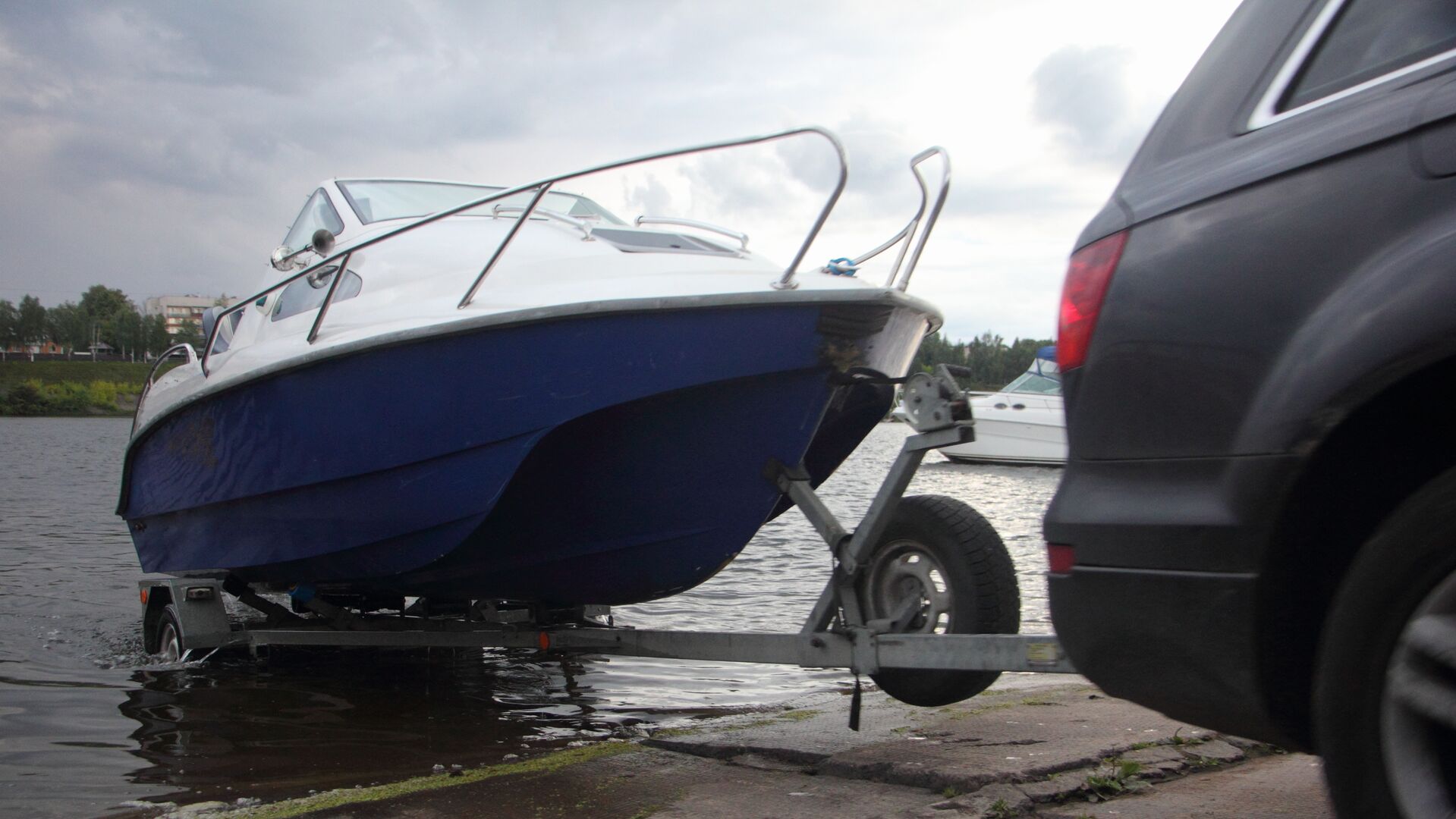
Gross Axle Weight Rating (GAWR) and Gross Vehicle Weight Rating
The Gross Axle Weight Rating and the Gross Vehicle Weight Rating will let you know if your tow vehicle and trailer can safely handle the weight you want to tow.
Both the trailer and vehicle have these ratings, which can be found in the owner's manuals. You should never exceed 80% of the recommended weight rating for your vehicle or trailer.
Always consult with the dealer when purchasing a trailer or a towing vehicle. They can help you understand which option will work best for your needs.
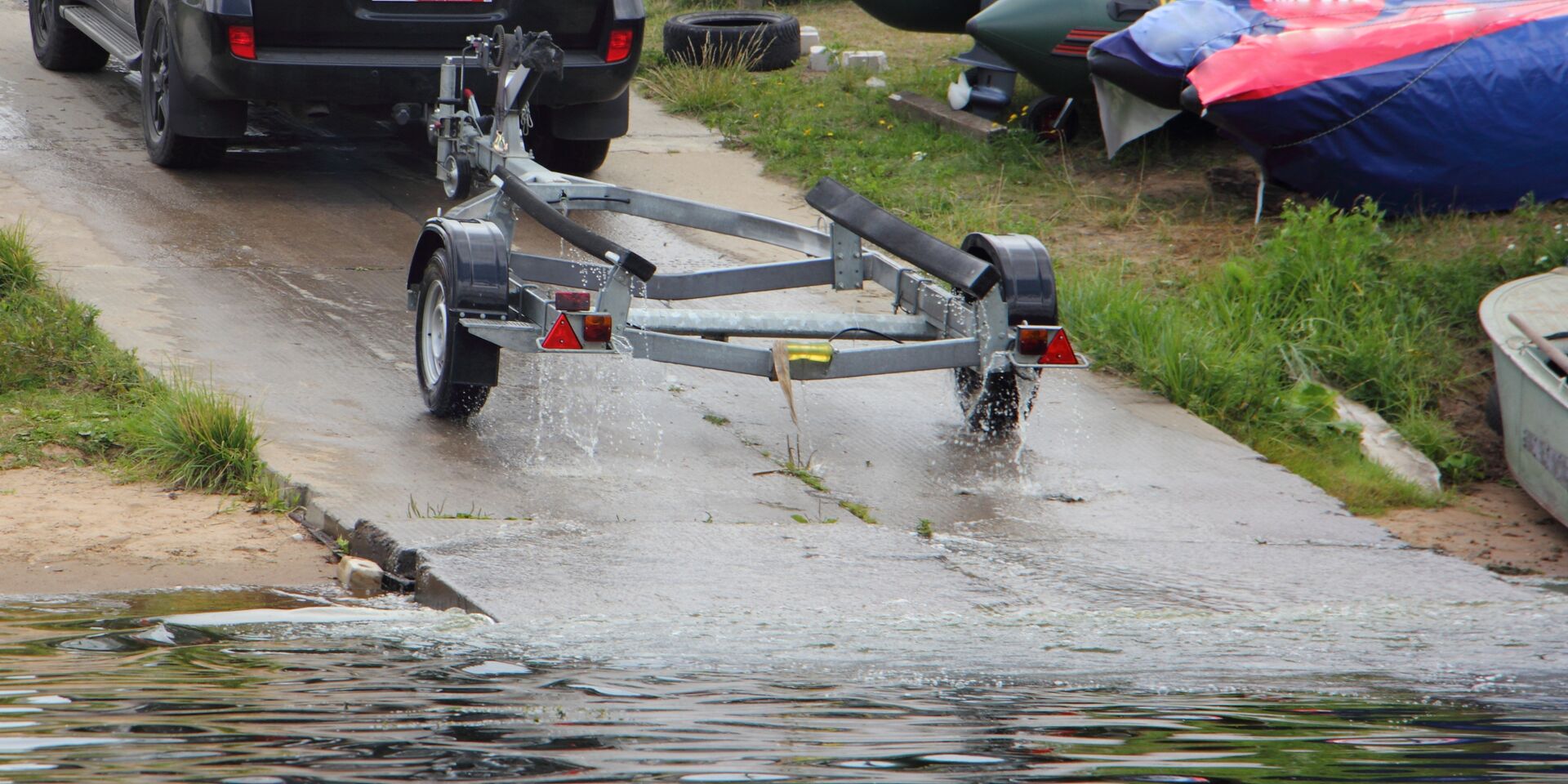
How to Prepare for Boat Towing
You have your trailer and your truck — but before getting out on the road with a trailered boat, you'll need to do a few things to make sure the journey is safe.
Follow these tips to get your boat trailered and ready for the road:
- Make sure that the boat is centered on the trailer and that fuel and gear are evenly distributed. An uneven load can make steering and maneuvering difficult, as it causes instability.
- Make sure all equipment in and on the boat is properly tied down and secure.
- Always crisscross the chains under the frame between the trailer and the towing vehicle. These chains are critical and act as a backup if the hitch breaks.
- Always make sure that trailer lights are in working order so that other drivers know when you are stopping, turning, or braking.
- Always check tire pressure and ensure lug nuts are secure.
- Make sure that your side-view mirrors are correctly positioned so that you have a clear view.
- Practice turning and backing up with the trailer. It can take some time to get used to maneuvering with a trailer; the more you practice, the easier it will become.
- Use additional straps to tie the boat to the frame of the trailer.
We can't stress practicing with your trailer enough. Practice maneuvering it before loading your boat onto the trailer. Then, practicing driving, turning, and backing up with the boat on the trailer.
Doing this can help you avoid being one of those boaters at the ramp that goes viral on social media when you experience a "boat ramp fail."
Road Handling with a Boat on a Trailer
When driving with a load such as a boat, be extra cautious. The additional burden of the trailer and boat will make your vehicle much less responsive.
Reduce your speed and allow more distance between you and the vehicle in front of you.
Always remember that you have another vehicle attached behind you. That means you must take corners at slower speeds and wider angles to ensure your trailer can get around a turn safely.
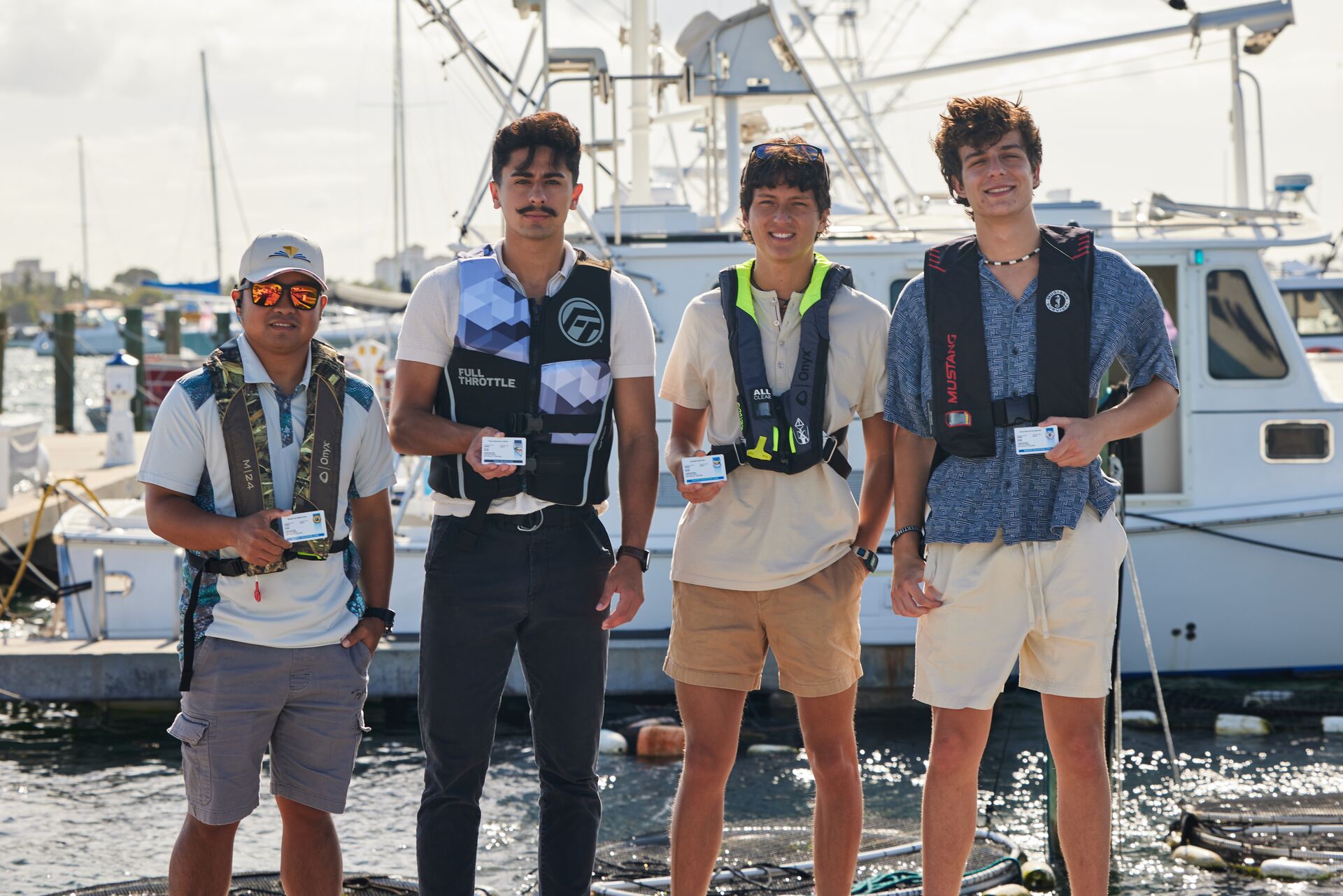
Learn More About Safe Boating with ilearntoboat
Getting your boat to the water through boat towing and trailering is only part of the challenge of a safe day on the water. Once you launch your boat from the ramp, you need to know how to operate it safely to protect yourself and others.
ilearntoboat can help! Our online boating education courses use a fun, gamified format to teach you the safety essentials you need or many adventures on the water. You'll learn everything from the safety equipment you should carry on board to how to understand navigational buoys and signs and what to do if something goes wrong.
It's easy to get started, and our course can be completed in about three hours. So, take the time to learn about safe boating with ilearntoboat! Choose the course for your state and get started.
First published in February 2021. Content most recently reviewed and updated for accuracy and relevancy December 3, 2024.

